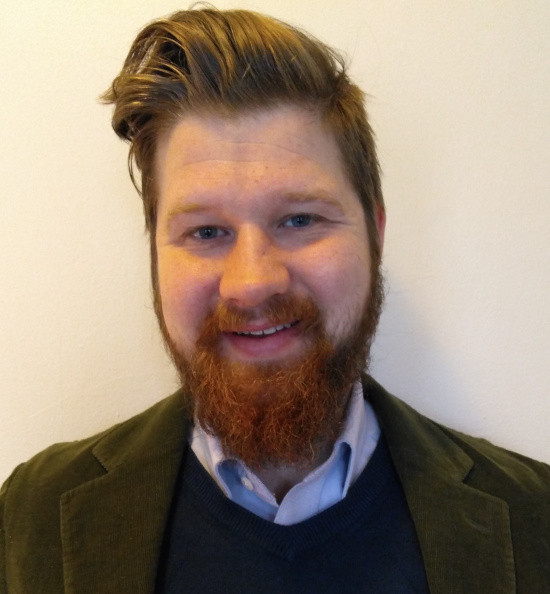Theoretical physics prof earns field’s first provincial grant
McDonough Astro-Particle Physics Group will study origins of dark matter

Supplied photo - Assistant professor of physics Dr. Evan McDonough was awarded a $50,000 provincial grant for his research on dark matter.
Pinning down the properties of the invisible “dark matter” that holds our galaxy together has eluded scientists for decades. A University of Winnipeg (U of W) professor recently received funding from the Province to support his inquest into one of astrophysics’ biggest mysteries.
Assistant professor of physics Dr. Evan McDonough was awarded a $50,000 New Investigator Operating Grant from the Province to further his work taking on big, unanswered questions about dark matter.
McDonough says his approach looks back 13 billion years to when “somebody slammed on the brakes” of the initial rapid expansion of the universe. He compares the production of dark matter at that moment to the energy recaptured by an electric car while braking.
“If (you) want to answer the big questions, you should think about how (dark matter is) produced,” he says. “Then you can ask: ‘How much heat was also produced in that process? What other things are produced, and how do we observe them?’”
Fellow U of W theoretical physics professor Dr. Andrew Frey says questions like these draw out “subtleties” that pop-culture understandings of dark matter and black holes often miss.
The New Investigator funding will allow McDonough to hire a master’s student. The successful applicant will join undergrads from the U of W and master’s and PhD students from McGill University and the University of Manitoba on his team.
They will also have the opportunity to participate in the Winnipeg Institute for Theoretical Physics (WITP), a group of 27 academics and their students who have contributed to expanding the reach and impact of McDonough’s work.
“I was raised in a big family. I have four siblings, so I like the big-group environment,” McDonough says. “I like a lot of people contributing with different, diverse perspectives, backgrounds and opinions.”
Frey says the group-based environment McDonough fosters has a “multiplying effect” on U of W researchers’ capacity for generative work.
“Theoretical physics works a lot by ideas,” Frey says. “One of the good ways to generate ideas is talking to somebody else who also knows all the ins and outs of what’s going on. Having somebody else here who’s at that cutting-edge research stage is really good for the (working) environment.”
Both professors say the WITP distinguishes itself through emphasis on group work and “pen-and-paper physics” as a means of tackling problems where experimental study is impossible.
“People who think in the abstract, solving equations on the board, getting together and trying to solve problems, that’s, within Canada, fairly unique to Winnipeg,” McDonough says. “We’re the biggest centre for theoretical physics between Vancouver and Waterloo.”
McDonough is in his third year as a professor. He says the grant’s “moral and financial” support is pivotal as he continues to adjust to the freedom and responsibility of professorship.
“The first five years as a faculty member (are) when you carve out a niche for yourself,” he says. “I am an emerging leader, and (the grant is) going to help propel me forward to being a world expert.”
Published in Volume 78, Number 14 of The Uniter (January 18, 2024)






